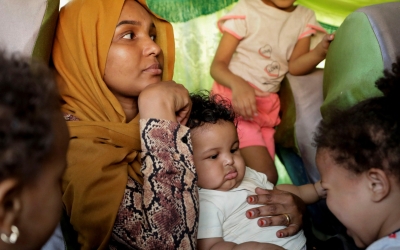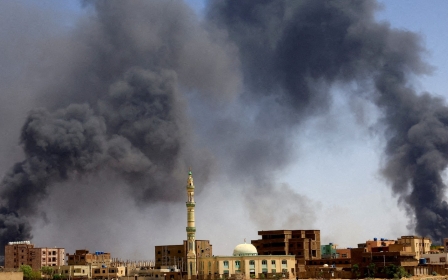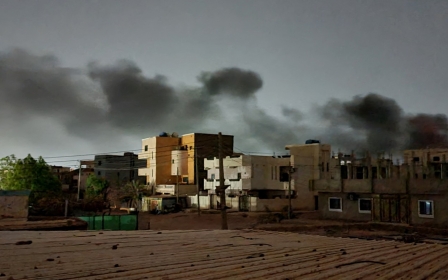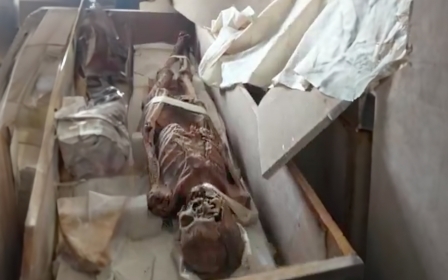Sudan: Huge fire breaks out in Khartoum as rivals battle for arms depot
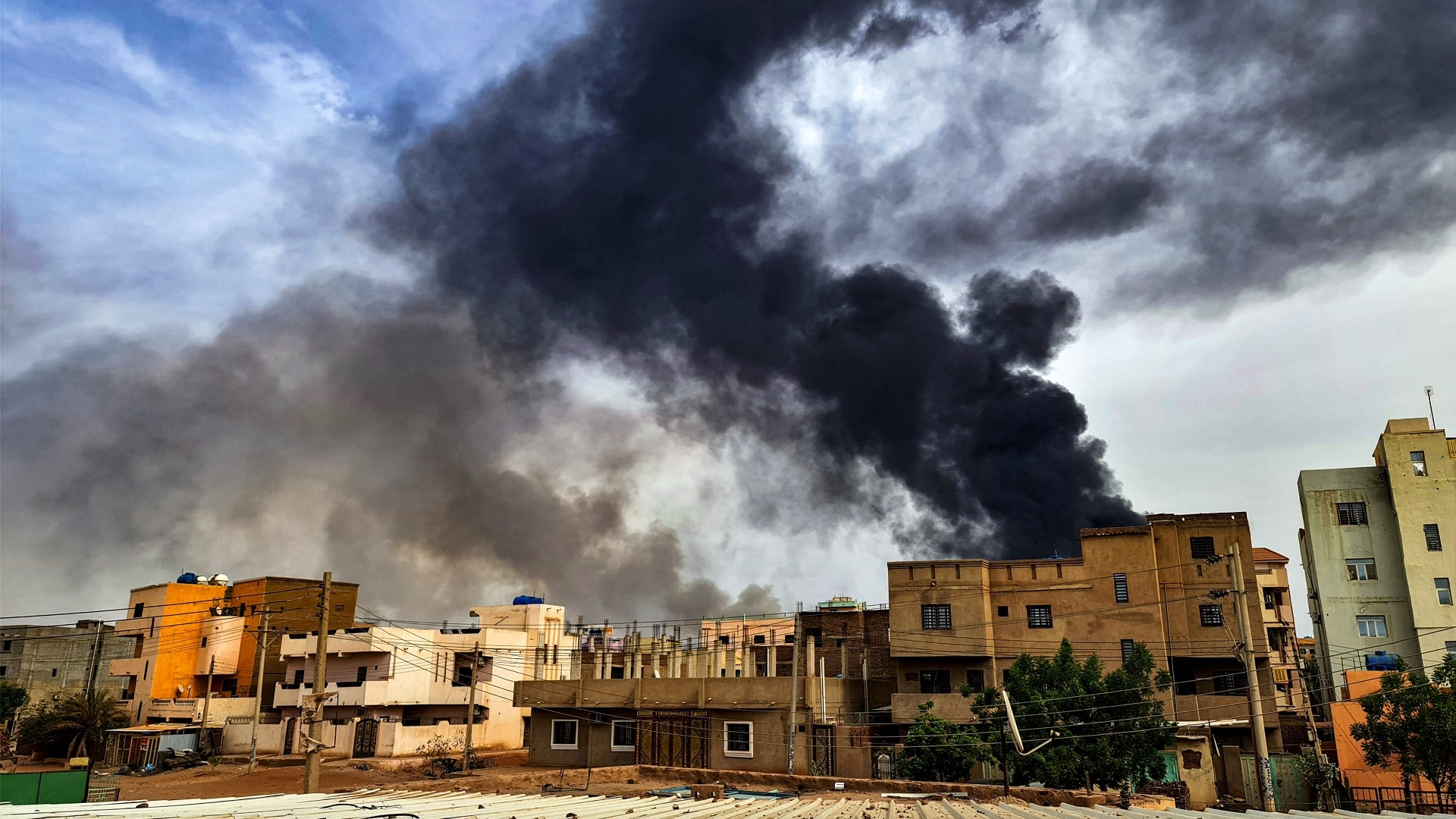
A huge fire broke out near a Sudanese military complex south of Khartoum on Wednesday, with paramilitary forces claiming to have taken over a warehouse filled with weapons.
On Wednesday evening, the paramilitary Rapid Support Forces (RSF) posted a video on Twitter which appeared to show RSF soldiers celebrating as smoke billowed near the Yarmouk military complex in the background.
The group claimed it had taken over the ammunition-filled warehouse, as well as several entry points to the site.
The Yarmouk complex, previously held by the Sudanese army that the RSF has been at war with since 15 April, is the biggest weapons and munitions factory in Sudan, and one of the biggest in Africa.
Sudan's army used air strikes to repel paramilitary advances in the area, the RSF said.
New MEE newsletter: Jerusalem Dispatch
Sign up to get the latest insights and analysis on Israel-Palestine, alongside Turkey Unpacked and other MEE newsletters
Local sources told Reuters that a fire began on Wednesday morning, which they said was caused by the bombing of fuel and gas depots, and grew in size by sunset.
Houses in the area were reportedly struck by shells and stray bullets. The flames were visible from Bahri in north Khartoum and Omdurman on the western bank of the Nile.
Despite the RSF's claims of taking over the complex, the army said on Wednesday night that fighting was ongoing and the depot was not fully under the paramilitary's control.
Devastation and displacement
Conflict broke out on 15 April between the RSF, headed by Mohamed Hamdan Dagalo, commonly known as Hemeti, and Sudan's army after disputes over plans for the paramilitary to be integrated into the regular military.
Several truces have been agreed since the fighting began, but both sides have repeatedly violated ceasefire agreements.
Last week, the army, headed up by Sudan's de-facto leader Abdel Fattah al-Burhan, halted truce talks in the Saudi city of Jeddah, accusing the RSF of failing to implement the terms of an existing agreement.
Negotiations for a new deal broked by Saudi Arabia and the United States began on Tuesday, but remain at an early stage as fighting continues.
"We urgently call on the warring parties to adhere to their commitments ... and to return to the Jeddah dialogue to resolve issues around violations and reach a ceasefire that is respected fully," read a joint statement by the US, Saudi Arabia, the UAE and the European Union, among others.
On Sunday, an RSF attack on the North Darfur town of Kutum in western Sudan killed at least 40 civilians and wounded many more, according to eyewitnesses.
Two eyewitnesses told Middle East Eye that the RSF and “non-uniformed Arab militias” also attacked the nearby Kassab camp, which houses people internally displaced during the Darfur conflict almost 20 years ago.
At least 780 civilians have been killed as a direct result of the fighting according to Sudan's health ministry. The actual figure is likely to be significantly higher, with many bodies unrecorded.
Over 1.4 million have been displaced from their homes, with a further 476,800 fleeing to neighbouring countries, according to the International Organisation for Migration.
On a journey from Port Sudan to the Egyptian border, displaced Sudanese travelling across the country shared tales of loss and woe, MEE reported earlier this week.
“A bomb fell on the building that I was living in, so we were trying to leave. But I didn’t notice that I had been shot in my leg," Rana Abdul Moniem told her fellow passengers.
"A few minutes after we had taken the kids and got in the car to leave, I started feeling something painful, and we saw the bullet hole in my leg.”
Middle East Eye delivers independent and unrivalled coverage and analysis of the Middle East, North Africa and beyond. To learn more about republishing this content and the associated fees, please fill out this form. More about MEE can be found here.


